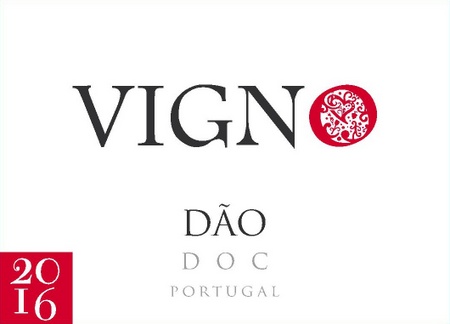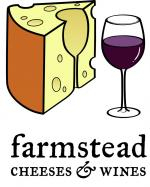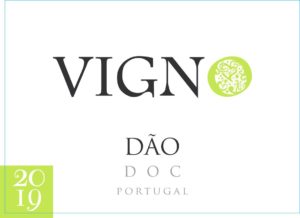A bottle of each:
freire lobo Vigno Dao Branco (Organic, Biodynamic)
freire lobo Vigno Dao Tinto (Organic, biodynamic)
Vigno Dao Branco (Organic)
Elisa Freire Lobo began her winemaking career in 1996, working and studying in the Bairrada region at Caves São João and the following year in the Douro with Anselmo Mendes. Being that she grew up in the Dão region, the oldest non-liqueur DOC in Portugal, she decided to return to her roots where she quickly became the very first woman winemaker in the region. In the ensuing years, she went on to work with many of the most respected producers of the region, including Casimiro Gomes, Carlos Rodrigues, Carlos Lucas, Alvaro Castro and the late Magalhães Coelho.
Elisa’s family has been growing grapes in the Dão for decades, so the next logical step would be to take over the family vineyards, which she did in 2010. Immediately, she began the conversion to organic farming, in order to respect the soil, plants and biodiversity of the 35 acres that she began farming. Between November and February, the vineyards are grazed by Bordaleiras sheep, which are typical of the mountainous Serra da Estrela where these vineyards lie at an elevation between 1500 and 2500 feet above sea level.
The sheep help control grass growth during wet months as well as adding essential natural fertilizer to the vineyards. Grasses and legumes are planted and encouraged the rest of the year as cover crops that improve the soil structure, increase fertility and help better manage the nutrients and limited water available in this poor, granitic soil. The cover crops stimulate biodiversity in the soil and vineyards, an essential part of long-term vineyard management. Only traditional Portuguese varietals are planted.
Reds include Touriga Nacional, Alfrocheiro, Tinta Roriz, Jaen, Alvarelhão, Baga, Bastardo, Tinto Cão, Camarate and Rufete. Whites include Encruzado, Cerceal, Bical, Fernão Pires, Malvasia and Barcelo. These are all harvested manually and some of their vineyards include ancient field blends, planted to virtually all of the above named varietals. The traditional methods of the vineyards flow directly into the winery where all fermentations are spontaneous using only indigenous yeasts.
50% Encruzado, 35% Bical, and 15% Cerceal. Encruzado has got to be my favorite Portuguese white grape these days. It’s got great structure and mouthwatering acidity for extended ageability, but fleet of foot, bursting with citrus and stone fruit flavors. Lightly creamy, fun and refreshing, with a backbone of lemon zest, pine needle, green apple, and tangy minerality. Wet slate, pomelo, pear – goes with any type of seafood.

freire lobo Vigno Dao Tinto (Organic, Biodynamic)
Elisa Freire Lobo began her winemaking career in 1996, working and studying in the Bairrada region at Caves São João and the following year in the Douro with Anselmo Mendes. Being that she grew up in the Dão region, the oldest non-liqueur DOC in Portugal, she decided to return to her roots where she quickly became the very first woman winemaker in the region. In the ensuing years, she went on to work with many of the most respected producers of the region, including Casimiro Gomes, Carlos Rodrigues, Carlos Lucas, Alvaro Castro and the late Magalhães Coelho.
Elisa’s family has been growing grapes in the Dão for decades, so the next logical step would be to take over the family vineyards, which she did in 2010. Immediately, she began the conversion to organic farming, in order to respect the soil, plants and biodiversity of the 35 acres that she began farming. Between November and February, the vineyards are grazed by Bordaleiras sheep, which are typical of the mountainous Serra da Estrela where these vineyards lie at an elevation between 1500 and 2500 feet above sea level.
The sheep help control grass growth during wet months as well as adding essential natural fertilizer to the vineyards. Grasses and legumes are planted and encouraged the rest of the year as cover crops that improve the soil structure, increase fertility and help better manage the nutrients and limited water available in this poor, granitic soil. The cover crops stimulate biodiversity in the soil and vineyards, an essential part of long-term vineyard management. Only traditional Portuguese varietals are planted.
Reds include Touriga Nacional, Alfrocheiro, Tinta Roriz, Jaen, Alvarelhão, Baga, Bastardo, Tinto Cão, Camarate and Rufete. Whites include Encruzado, Cerceal, Bical, Fernão Pires, Malvasia and Barcelo. These are all harvested manually and some of their vineyards include ancient field blends, planted to virtually all of the above named varietals. The traditional methods of the vineyards flow directly into the winery where all fermentations are spontaneous using only indigenous yeasts.
90 points, Wine Enthusiast: Fermented in open top tanks with foot treading, the wine is dense and concentrated. It has a plummy character that gives an open texture and richness. Acidity and tannins at the end are now balanced and the wine is ready to drink.
40% Touriga Nacional, 30% Jaen (Mencia), and 30% Alfrocheiro.



